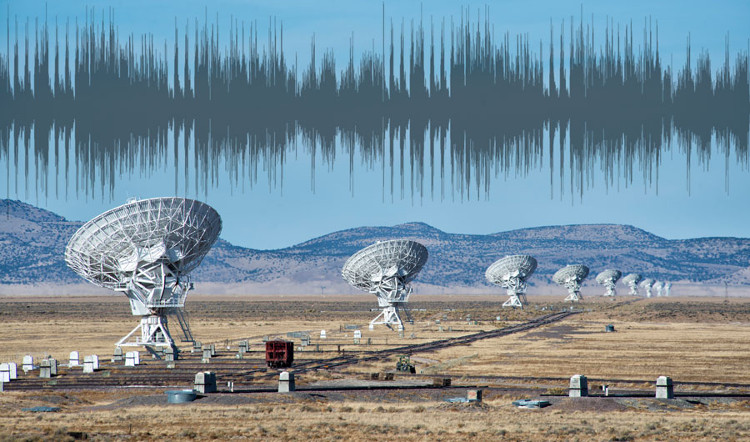Will the 5G network threaten astronomy?
The rapid development of the 5G network in the future could threaten the ability of radio astronomers to capture signals from space.
According to Inside Science, over the weekend, the American Astronomical Society hosted a conference in Maryland, which highlighted a new source of pollution that has been noticed by the scientific community in recent times:.
Although the human eye cannot see radio waves, they are the fundamental part of the electromagnetic spectrum - the range of all possible frequencies, extending from low frequencies such as modern radio radiation to gamma radiation - used by astronomers to survey the universe.
Currently, the rapid growth of wireless telecommunications companies is disturbing the radio environment.
"The biggest impact in the future is the next generation of wireless telephone networks," said Harvey Liszt, a radio astronomer at the US National Radio Observatory in Virginia state.

Will the world face serious radio pollution in the future?- (Photo: John Fowler).
5G networks operate at 28, 38, and 60 GHz bands. According to the inventors, the 5G network will achieve speeds 100 times faster than 4G networks.
But before the popular 5G network, today's telecommunications electronics have been "confronting" with many types of radiation in the electromagnetic spectrum.
In addition, private space firms like Boeing and SpaceX are planning to launch thousands of satellites with the goal of providing global broadband Internet.
When this new system is established, they will leave a lot of impact, which can at least disturb the radio spectrum that radio astronomers often use when exploring the universe.
Radio waves have lower frequencies and lower energy than visible light but play an irreplaceable role in exploring low energy phenomena in the universe as cosmic microwave background radiation is also known as radiation cosmic remnants .
This type of electromagnetic radiation was born from the early period of the universe about 380,000 years later.
Radio waves contribute to radio astronomy - a segment of young astronomy, studying celestial bodies through radio radiation.
Therefore, in order to avoid future negative impacts, scientists are working with policy makers to limit or appropriately distribute telecommunications networks that may affect the research of dance. cylinder.
- Radio astronomy and giant antennas
- Basics of network devices
- Top 10 best astronomical apps on Android
- Self-troubleshooting network system thanks to artificial intelligence
- This is why your creativity is inferior to others
- 11 -9 on the network
- How much heat will threaten human life?
- The father of modern astronomy
- Ericsson expanded GSM network with Vietnamese partners
- What is Lotus Social Network?
- Two large meteors are flying towards Earth
- Detection of space network
 Van Allen's belt and evidence that the Apollo 11 mission to the Moon was myth
Van Allen's belt and evidence that the Apollo 11 mission to the Moon was myth The levels of civilization in the universe (Kardashev scale)
The levels of civilization in the universe (Kardashev scale) Today Mars, the sun and the Earth are aligned
Today Mars, the sun and the Earth are aligned The Amazon owner announced a secret plan to build a space base for thousands of people
The Amazon owner announced a secret plan to build a space base for thousands of people